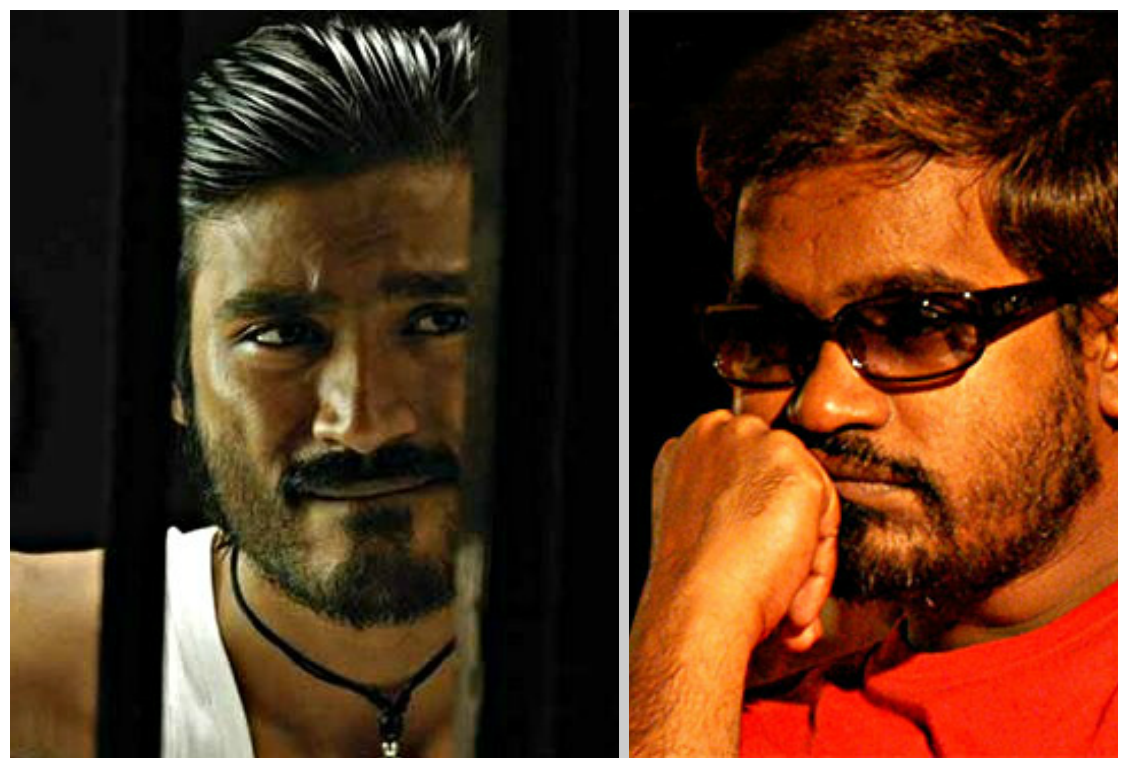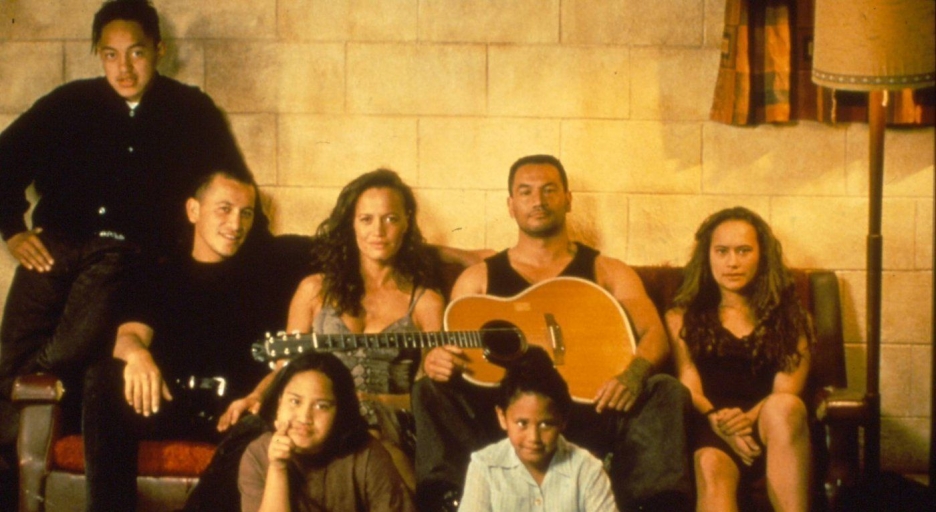VISAARANAI
VISARANAI : MOVIE REVIEW
RATING : 5 STARS OUT OF 5 ( MASTERPIECE )
DIRECTOR-WRITER – VETRIMAARAN
CO-PRODUCER – DHANUSH
TAMIL (ENGLISH SUBTITILES AVAILABLE), 2015
WARNING – This cinematic and sociological scorcher cannot be discussed in detail without some moderate spoilers being divulged. If you desire no spoilers whatsoever, you may return to the review after watching this special film.
Vetri Maaran’s ‘Visaranai’, audaciously produced by super-star Dhanush, is a focused masterpiece – a merciless expose of the public-police-politician nexus that India battles as it tries to re-establish its status as a great nation. Many other movies have sought to expose this systemic rot but ‘Visaarani’ ( Interrogation), goes several steps higher with its razor-sharp focus on the two hour narrative and its honesty about how the public too is corrupt when push comes to shove. Propelled by a genuine producer, Vetri Maaran is explosively powerful in his no-holds barred story-telling of the numbing violence that afflicts a group of people that are abducted by the Andhra Pradesh and Tamil Nadu police and then serially tortured.
There are no commercial distractions ; and the excess melodrama of background music is pared down to a minimum ( directors please take note). S.Ramalingam’s high-quality cinematography with its considered frames and good use of natural light, boosts the film’s aesthetics, with bonuses like a steady-cam fluidity as the lens floats in and out of hellish rooms.
Ram Gopal Varma, the great cine-profiler of India’s police-politician nexus, opened his E.Niwas-directed ‘Shool’ with the written declaration that the country would have collapsed were it not for virtuous police officers like the featured Samar Pratap Singh. Vetri Maaran is honest enough to reflect this sporadic truth in his story, that is otherwise super-infected with corrupted police who themselves are held at gun-point by rotten politicians. Many of us have seen enough of life to know that even the greatest police cannot survive if the politicians are corrupt. The police team will get eventually transferred or replaced and a new set of crooked cops will rule the roost. This reality is subtly underlined in this multi-layered film. When the public lose the chance to resurrect and the political class is Satanic to the bone, who exactly are we trying to reform ?
Pic’s structure is highly unusual in its merit – first an innocent group is kidnapped by police and beaten until their bones crumble into their souls, then after a long time they get a genuine chance to escape, and we see what they do with this chance, and the narrative next refracts to see what a super-rich victim can do when the police decide to hang him up and smash his body, and finally we the public witness what is the end result when two Tamil Nadu Tyrannosaurus Rexs rip at each other at the unseen end of the phone-line, while the underlings at their giant feet are crushed like insects in full view.
First Frame opens before sunrise in a park in Guntur, Andhra Pradesh where a group of low-paid migrants from the neighbouring state Tamil Nadu are staying illegally. They bribe the public park’s watchman, who being an alcohol enthusiast, asks for a bottle in further compensation. They could have pooled their money to stay in the most basic room, but they want to save the last rupee and hence the park option and watchman-bribing – a nice park example of grass-roots corruption. But their penny-pinching is little compared to what the town’s police station has in mind. Money is missing in an influential house-hold and someone else needs to framed because the correct culprit has not been caught. Finding four homeless sacrificial lambs from out of state for whom almost no one will fight, the police pick them off the streets, lock them up and take out the beating sticks to force a confession. But the leader of the four-pack is strong ( a nuanced Dinesh Ravi ) and refuses to confess to a crime they have not committed.
The bare scenes of being thrashed up and water-tortured in police lock-up is pic’s strongest physical aspect. The bodies are thulped with big sticks, the marks on the mens’ bodies enlarge like crying stigmata and it is here that Visaranai establishes a transcontinental, trans-temporal connection to the smashing physical brutality in ’12 Years A Slave‘. But in that movie and country, the black man and the coloured man is at particular risk ( we will discuss J.F.K’s fate in another review), whereas in ‘Visaranai’s country, you can be whoever the hell you are, even with a lot of money in your bank, and still get thrashed and hung up to the point of murder in a police station.
In one of these numbing scenes, while the police go on rampage, and we watch, writer-director Vetrimaaran himself shows a different kind of restraint – he mostly switches off the background music which could have diluted this scene and instead lets the natural sounds of the scene emerge – the thwack of the heavy stick, the men crying in agony, the chirp of insects outside – this last sound artistically used as a warning gong whenever the hell in the film is going to brim over with an extra wave.
No society anywhere in the world can continue its police-politician corruption if they alone are corrupt – the rot starts from the everyday man’s soul and this is on admirably open display here if only we look closer. The group of four has the good luck to land in front of a virtuous judge in a local court ( nevermind that the judge is foolish and irresponsible enough to not have arranged an official translator in the court). They get a great chance to escape but when a bait is again lured in front of them…
After that point, I have to confess I stopped caring about them. This does not make the film any weaker. Gears shift smoothly to intra-police politics as the two main political parties in Tamil Nadu want to kill each other. We have seen this on real-life television where even a supremo like ex-chief minister M. Karunanidhi was dragged out of his home by police officers in revenge perpetrated by his rival J. Jayalalitha.
‘Visaranai’ takes us behind the scenes to show how this plays out inside police stations. You may be a reasonably honest police officer who wants to do the right thing, but how much can you do when in your brief absence, a higher police officer barges in, ties up a man and tortures him in your station ? This sequence throws out of the window the assumption that only the poor and powerless are tortured.
Pic’s most illuminating sequence plays out when the camera records half a dozen policemen deliberating how they want to spin a custodial death. If they want to be heroes ( martyrs too), they may resign – but what other job would they go for, especially when they themselves may soon get murdered as part of the cover-up, and considering how power-addicted we see they have become.
Only one cop – Muthuvel (Samuthirakani) – is shown to have moral spine – and we realize a chilling truth about people like him – they may survive if they are corrupt, but they will get killed if they are honest, because all the cops around him are rotten. Samuthirakani’s deft and moving act ( contrast with his villainous role in another socio-pathologic masterpiece ‘Subramanipauram’ ) is a synecdoche of the film’s excellent casting.
One other young trainee police officer - a lady (played by Misha Ghoshal) – shows gumption, but if her colleagues come to know, she may not survive either.
A remarkable conversation occurs between Muthuvel, his two ‘superior’ police officers and his constable. Muthuvel tries to fight for the right thing but he is not yet powerful enough to do a fancy thing like that – and his superiors try to beat amoral sense into his silly mind. Just co-operate and we will all be fine ! The constable, older than all of them but power-wise the weakest, issues a stunning scriptural statement about the value of the human life. Is he the saint in the group ? We see the answer later on, as he eventually achieves the inverse of his cousin John Ryan’s arc in Crash (2004). Muthuvel is also insulted as the foolish low-caste “quota” candidate in the group ! This is what you get in real life when you try to be a hero.
It is only in the last fifteen minutes that the movie’s taut-as-a-switchblade momentum lags but by that time, with its relentless focus on police politics and the brutality of the human condition, ‘Visaranai’ has already seared its mark into the records as a vital sociological document and a bristling movie. There is no point blaming the police and politicians when the public, from which the police and politicians obviously arise, are similarly corrupt. There is no candy at the end of this picture. No one will give it to you, they will even pull the candy out of your hand and shove it up your private part. You will have to slowly, over years and decades, create a special environment, where others will have to be wooed to support you, and then if you are really a supreme strategist, you may make your own candy and then safely enjoy it.
UPN
UPNWORLD welcomes your comments.










0 COMMENTS
WRITE COMMENT